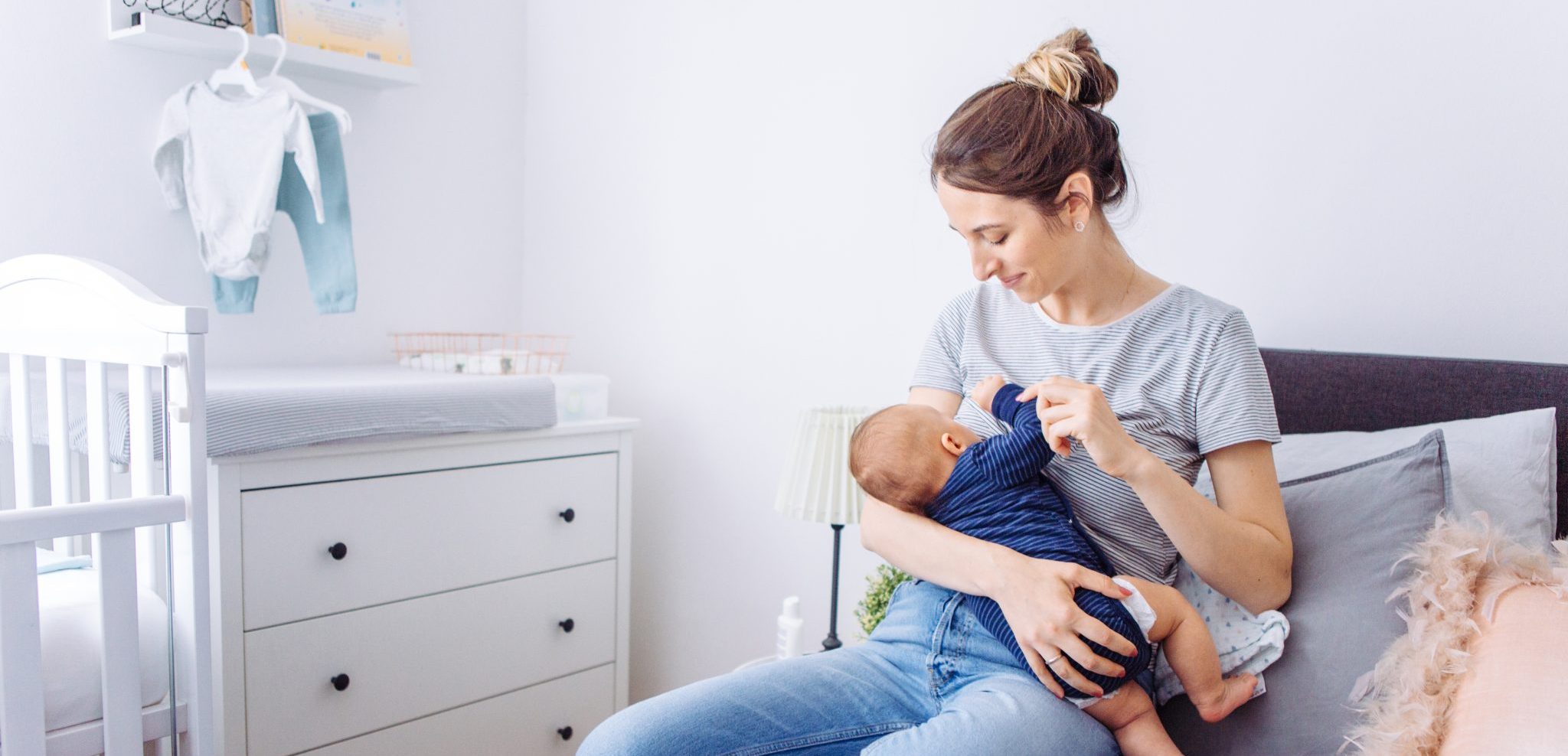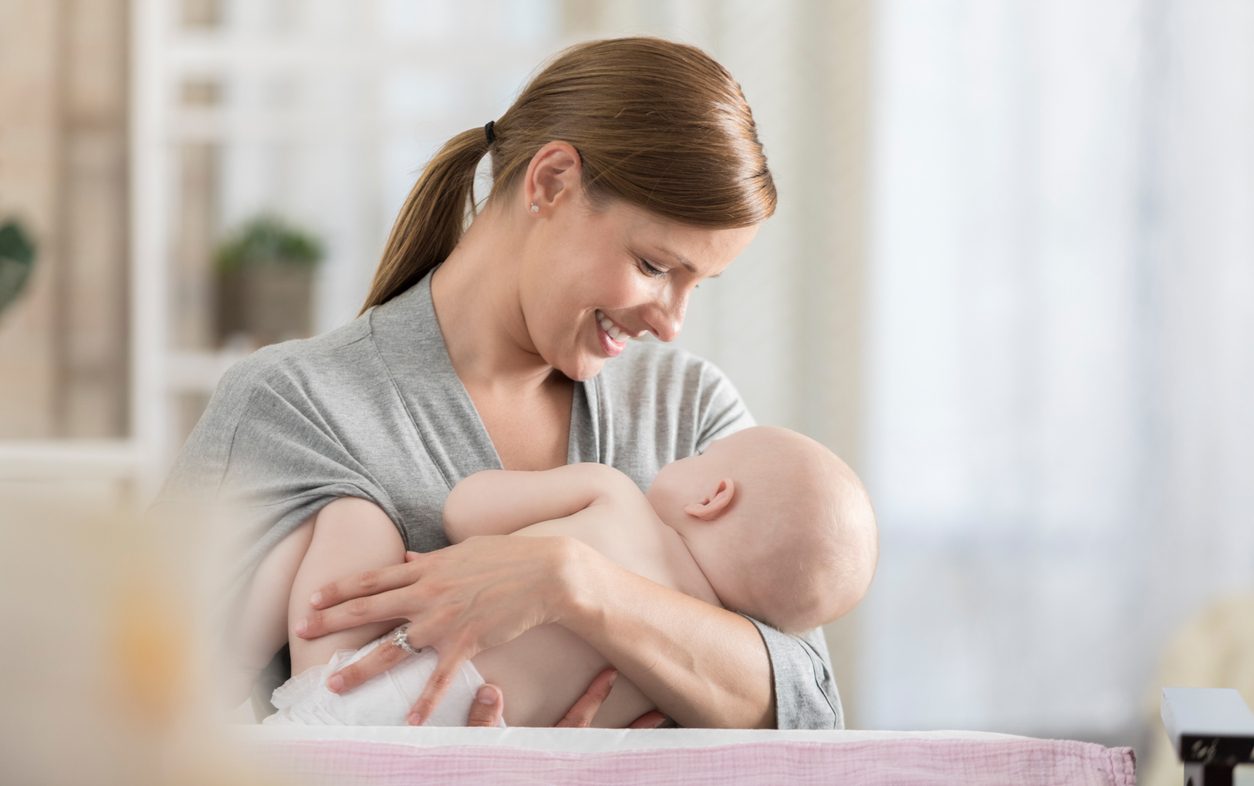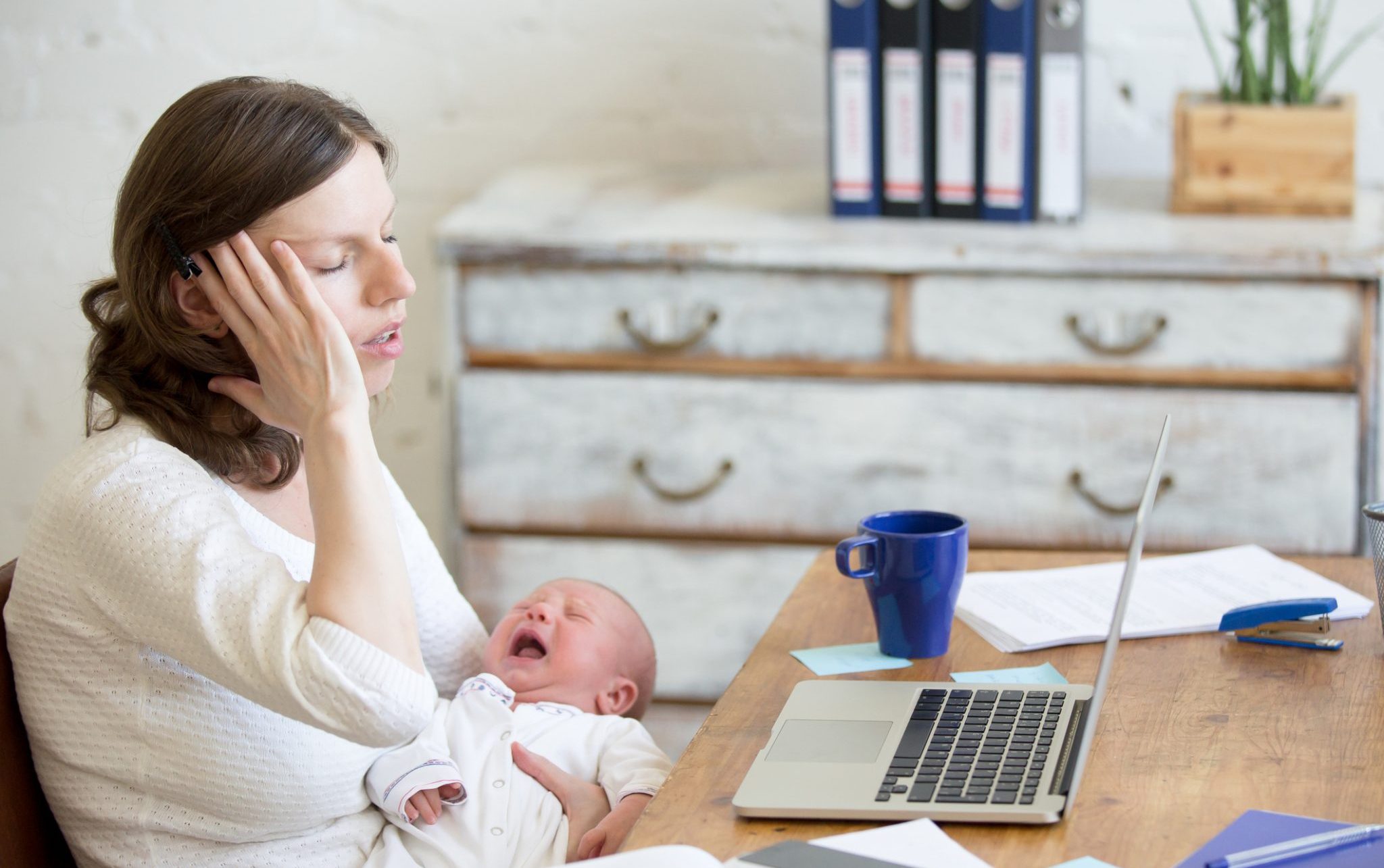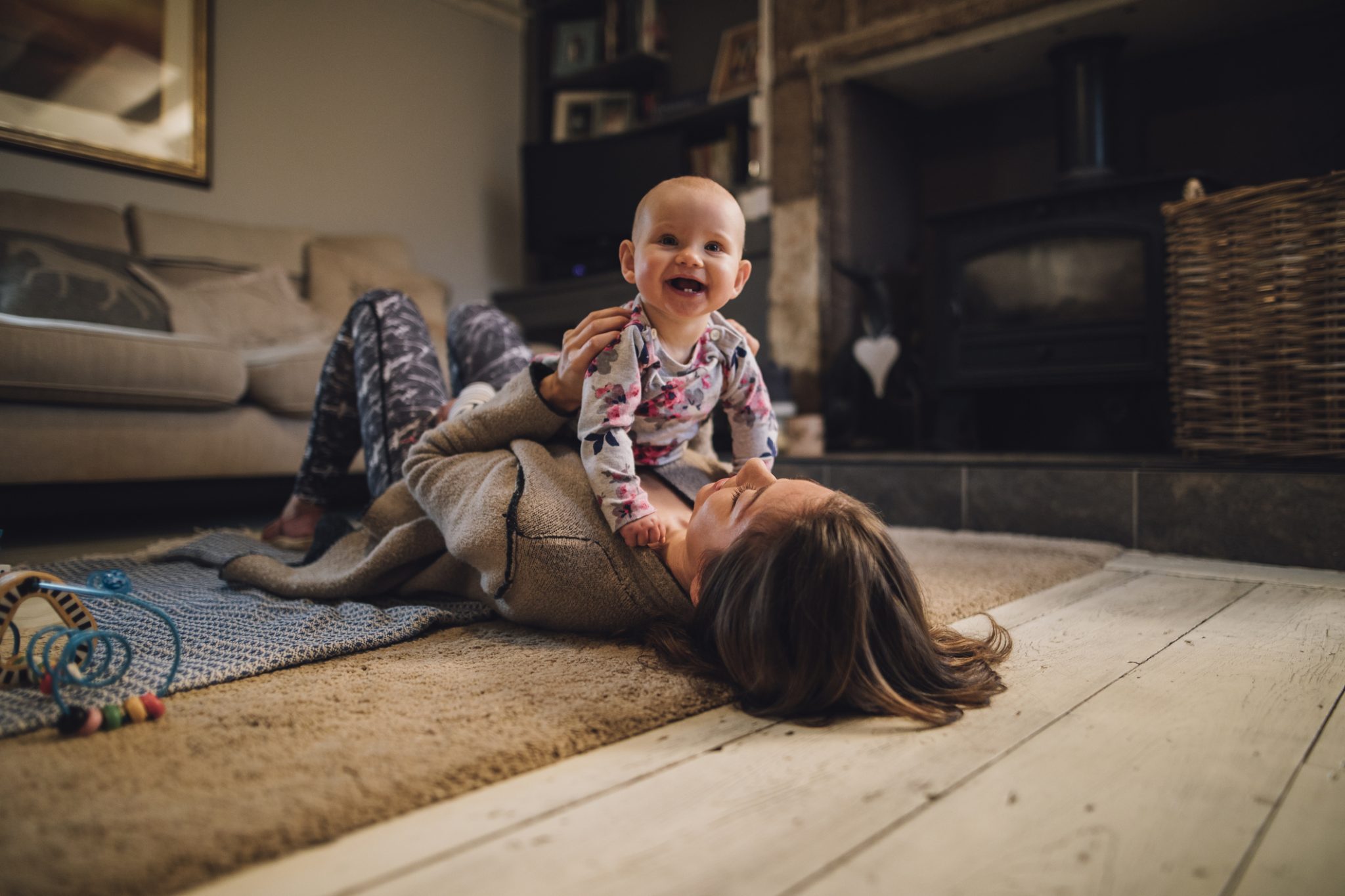When you’re pregnant, it’s all about Day X. That one big, amazing day where you meet your long-awaited little one and finally hold them in your arms. Oh, you’ll hear lots about what your baby needs and what they will do, milestones, and more, once they’re finally world-side. And that’s great! But don’t forget about you.
Your postpartum journey can be just as surprising as your pregnancy, with new experiences and feelings every day. As I write this, I’m currently eight months postpartum with my second child. For me, the journey has been different with each baby, and I’ve learned to expect the unexpected and go with the flow a little.
What you experience with one baby post-partum, like with pregnancy, you may not experience with the other. Or it can be so much more intense. So, let’s take a look at what can happen postpartum with the 10 things you never expected after having a baby.
10 Things they don’t tell you about life postpartum
#1 Breastfeeding and nursing cramps
You’ve probably heard all the benefits of breastfeeding by now – protection for baby and mom, possible weight loss, optimal growth, and more. And that’s all true! Breastfeeding a baby for six-months and beyond is recommended by the World Health Organization.
But here’s what you probably don’t know. Ever heard of nursing cramps? Me neither. Not until I was lying in my hospital bed, feeding my newborn and started having pains in my stomach. Ouch!
Safe to say, I was surprised. But I soon learned this is normal. Nursing cramps happen because, as you breastfeed, the body releases hormones to shrink the uterus back to its natural size.
It can be painful. And this pain can be even worse with each baby. But it isn’t anything to worry about. If you need to, ask your doctor for some painkillers to ease the ache and don’t suffer in silence. It will all pass sooner than you think.
So, what if you don’t choose to breastfeed or simply can’t? Don’t worry. Breastfeeding isn’t for everyone. And there are many reasons you may not be breastfeeding your little one:
- You baby can have a poor latch
- You don’t have enough milk
- Tongue ties can affect feeding
- It might be too painful for you
- It’s just not for you
And that’s ok. In this case, consider getting in touch with a breastfeeding consultant. They can help you hack the world of breastfeeding or decide if switching to formula is the right choice for you.
Nugget of wisdom: Your baby, your body, your choice. Breast is good, but a fed and happy baby is best. So, Mama, you do what’s right for your family.
#2 Your baby won’t be the only one in diapers
When I went to have my first baby, no one told me the bundle of joy wouldn’t be the only one leaving the hospital in diapers. Yes, it’s true! Alongside those first tar-like poop your baby will do, you’ll be dealing with your own fluid issues.
No matter whether you went c-section or au natural, in the postpartum period, it’s likely you’ll experience some bleeding. This is called lochia. And it usually lasts between four to six weeks after childbirth.
Essentially, it looks a lot like a period. For some women, the bleeding is lighter than others, for others heavier, and you may even experience some clotting too. This isn’t pretty, but it’s normal.
But if you notice a lot of blood or a strange color or smell. Get in touch with your doctor ASAP.
Nugget of wisdom: Adult diapers are so much comfier than postpartum pads and hospital underwear. Sure, you can’t wear your favorite jeans, but your backside will thank you.
#3 You might still look pregnant
If you look at the glossy images of the Duchess of Cambridge, Catherine (formerly; Kate Middleton), you might be misled to think that you’ll walk out of the hospital a few hours after birth looking like a model and feeling refreshed.
And while for some women this is the case (you go, girls!), for the majority of us, our first venture outside is more likely to look like you are pulling on those pregnancy clothes, sliding on a nappy, and taking those first tentative steps into a strange new world. But don’t worry, it will be ok eventually.
The thing is, once you have a baby, that baby belly doesn’t immediately disappear. And this can vary from having a small little pudge to what looks like a full pregnancy belly. Both are normal, and so is everything in between.
When preparing your postpartum clothes for leaving the hospital or for after your home birth, plan ahead. Choose a slightly bigger size than you’re used to. Forget about tight styles and go for comfort.
No matter whether you had a c-section or vaginal birth, you are going to be feeling tender, so cut yourself some slack and choose your comfort. You’ll feel much happier because of it.
Nugget of wisdom: Take photos. Don’t worry about your hair or make-up. Forget about that pudge. One day in the future, these memories will be priceless.
#4 Your hair will fall out
Remember those luscious locks you had when you were pregnant? This was a result of the high hormone levels in your body, meaning you lost a lot less hair than usual. But after your baby is born and those hormone levels drop, it’s time to prepare for hair-maggedon.
For me, it started month three postpartum. One day I went to the shower and noticed a lot more hair than usual in the drain. Then I started seeing it around the house—cue lots of cleaning and panicking. But by month five, hair loss had slowed down, and I eventually stopped wondering if I would have any hair left at all.
Yours will too. However, it may seem like a lot of hair right now. Eventually, it will normalize, and your locks will return to how they used to look. The best thing you can do to help your body is get as much sleep as you can and eat lots of vitamins and minerals.
Nugget of wisdom: Go with the flow. There is very little you can do about postpartum hair loss but live through it. You will still have hair afterward, so take a deep breath and rock that mom-bun.
#5 Mom brain is real
Hello, Mrs. forgetful! Yep, that’s your new name, because you will forget everything. Except for the baby, of course. Post-partum can hit hard, and you will find yourself unable to concentrate on work tasks, walk into a room and forget why you’re there, or even go out of the house with your top pulled up after a breastfeeding session. Ooops.
Welcome to Mom Brain. A genuine, sometimes funny condition that leaves you feeling partly as if you’ve lost your mind after having a baby. But, there is a plus side too.
Research shows that after you give birth, your brain fundamentally changes. It is suspected that these changes allowed women to be more responsive to their baby’s needs, such as reacting to the baby’s different cries and more and making you a better mom.
These changes can last up to two years so that you might be feeling a little bit scatterbrained for a while. But during that time, you’ll learn how to manage your time, multi-task, and become an awesome mom to boot.
Nugget of wisdom: Keep an extra set of the essentials in your nappy bag, including your keys, wipes, clothes for baby, diapers, and snacks. You’re likely to grab this bag as you leave, so it’s unlikely you’ll forget the essentials. Aka. Less stress.
#6 Your sex life won’t be back to normal immediately
Your gynecologist has told you four to six weeks postpartum, you’ve heard three months. You’re feeling confused. Perhaps sore. Perhaps worries. All this is normal.
The desire to have sex after you have a baby varies from woman to woman. Some feel ready after a couple of weeks. In this case, always check with your doctor, who will be able to give you the go-ahead (or not). Others might not feel ready to get back in the saddle to months after having a baby. And this is ok too.
If it’s been awhile and you’re concerned, it may be best to get in touch with a doctor. Sex is a normal part of a healthy relationship, so if you feel something is wrong, ask a specialist for help. You may have a hormone imbalance or be experiencing other issues, so don’t panic and ask. Alternatively, it might simply take you a little time. So, relax and ask for help if and when you need it.
Nugget of wisdom: The post-partum period can mean extra fertility. So, remember, it’s essential to use protection if you don’t want to have Irish twins.
#7 You will survive on little sleep
Remember, when they told you when you were pregnant: “sleep now, because when the baby comes…” Well, that time is now. And they weren’t lying. Even if those prenatal sleeps were that anything to write home about either.
Weekend lie-ins? Forget about it! Your new sleep schedule looks a little different than it did before. Especially at the start when your baby is feeding frequently. You will find yourself waking more often. This might be every two hours to every four hours. And it is exhausting. All you can do is get as much rest as you can and get through it.
Soon, your little one’s sleep schedule will change, and you’ll find they’ll sleep longer. If you’re fortunate, they might even sleep through the night. It’s heaven. But if they don’t right away, don’t panic. Every child is an individual. There are methods you can try to help your little one sleep better, but this is a personal decision for every parent to make.
What is for sure, though, is that you will get through it: Sleep-deprived and all.
90% of parents are not getting the recommended amount of sleep. On average, they lose 109 minutes of sleep a night. Add that up over the first magical yet exhausting, year and that’s a total of 663 hours of lost sleep or almost 28 days. You read that right.
New parents lose up to 28 days of sleep in the first year
Nugget of wisdom: Sometimes, it’s ok to pass up that extra day time nap for some me-time. Self-care isn’t selfish, and you do need that tiny sliver of adult time – watching a movie, reading a book, having a conversation with someone who talks back – to get through it.
#8 Postpartum anger is real
Dishes aren’t cleaned, again. Your toddler is asking for yet another snack. Your husband is still asleep. Usually, none of these things would bother you. You are generally so Zen, but today you find yourself boiling over. You are past breaking point.
This is postpartum anger. And it is very real. Postpartum rage is one of the mood disorders that can occur after pregnancy as your hormones fluctuate, and tiredness kicks in. You may find you:
- Lose your temper more quickly
- Scream or swear (a lot)
- Punch walls or physically express your emotions
- Have violent urges or thoughts, possibly including to your loved ones
- Focus on the negatives
- Can’t get out of the funk
- Feel very emotional in general
Mama’s with post-partum anger may feel ashamed to have these emotions. Perhaps, you even think it makes you a ‘bad mom.’ It doesn’t. Postpartum anger is a recognized condition, and if it is impacting on your life and relationship with your new baby, you need to get help.
This might be as simple as sitting down with your partner and talking things through. Or it might mean cognitive behavioral therapy to help you find better ways to deal with that anger. Remember, you are not a ‘bad mom.’ Everyone needs a little help sometimes.
Nugget of wisdom: Try to share the load. Being a new mom is hard. Accept help when it’s offered and ask for it if it’s not. You are a superhero, but not invincible, and you need downtime too.
#9 Taken by the fear
“Dr. Google, is it normal when my child does X, Y, Z?” Every parent worries about their little ones. And that’s normal. From the moment they depart your warm, soft womb and make their way into the big bad world, you start to worry about everything.
This fear can range from wondering if it’s normal that they aren’t sitting by 5 months – it is! – to deep philosophical worries, such as, “what kind of world have I brought them into?” and everything in between.
While some are easily solved by Dr. Google (although consulting a real doctor is best for any medical issues), others require you to exercise mindfulness and actively return your mind to calm.
You can’t predict every scenario out there. You are not a magician to make their life perfect. All you can do is guide them. To calm yourself, you might want to try some handy visualization techniques. These help you ‘see’ the best future for your little one. After all, they say when you visualize the good, you draw it to you.
Nugget of wisdom: Take a deep breath. If you find yourself panicking about the future, the best thing you can do is stop and take account of where you are now. Relax your mind and body, and proceed with a cool head.
#10 You’ll experience a love like no other
Being a mom is exactly like having a tiny piece of your heart outside your body. Alongside all that fear and doubt is something else too. Love. Like no other.
When you look at your little one’s face and see them smile, when they do something for the first time or simply sleep (lucky you!), your heart will melt. So, no matter all those sleepless nights, stinky diapers, coughs, colds, meltdowns, and everything in between. You will get through the tough days and live for these moments.
Nugget of wisdom: If this isn’t your first baby, you may be worried as to how you can love anyone as much as your first. You will! And in no time at all, you’ll wonder how you ever do without them.
What’s not normal?
In this article, I’ve covered some of the most unexpected postpartum experiences that you may have. But there’s one thing we haven’t covered yet – postpartum depression. Postpartum depression is a type of depression that can happen after a woman gives birth (note: fathers can be affected too).
Up to 1 in 7 women experience this condition. Although there is not one specific cause, hormonal changes, a history of depression, and stress are contributing factors.
So how do you know if you have postpartum depression? Here’s what to look out for:
- Excessive crying or being teary
- Inability to cope
- Difficulty bonding with baby
- Withdrawing from people
- Lack of energy or interest in life
- Severely depressed mood
- Dulling of feelings
- Inability to think clearly
- Restlessness
- Insomnia
- Changes in diet (eating too much or too little)
- Self-harm or suicidal ideation
- Thoughts of harming your baby
If you are experiencing these things, or suspect that you have postpartum depression, please get in touch with a doctor. You don’t have to suffer alone, and it doesn’t have to be this way.









